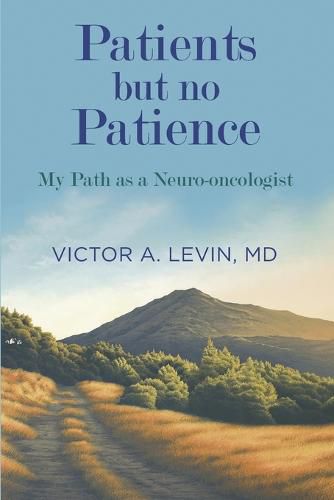Readings Newsletter
Become a Readings Member to make your shopping experience even easier.
Sign in or sign up for free!
You’re not far away from qualifying for FREE standard shipping within Australia
You’ve qualified for FREE standard shipping within Australia
The cart is loading…






This title is printed to order. This book may have been self-published. If so, we cannot guarantee the quality of the content. In the main most books will have gone through the editing process however some may not. We therefore suggest that you be aware of this before ordering this book. If in doubt check either the author or publisher’s details as we are unable to accept any returns unless they are faulty. Please contact us if you have any questions.
Patient but no Patience describes the personal journey of Victor Levin, MD in the early days of medical oncology and the development of research and treatments for infiltrative central nervous system (CNS) tumors. This journey starts before CT and MRI scans became available and at a time when clinical treatment options were biopsy or surgical resection followed by large-field external beam irradiation and chemotherapy for CNS tumors was not yet established, and its role not yet proven. This memoir describes the development of early clinical trials including combinational chemotherapy regimens like the still important PCV schedule; the mathematical modelling of the penetration of anticancer drugs into normal brain, brain tumors, and the cerebrospinal fluid bathing the brain; and the pharmacokinetics of chemotherapy drugs in brain tumors and the treatment of leptomeningeal cancers. Dr. Levin also recalls and discusses some of the early clinical studies in the neuro-oncology field such as the development of nitrosoureas (BCNU and CCNU), concerns about radiotherapy induced cognitive deficits and their treatment, the change from whole brain radiotherapy to smaller involved field radiotherapy, the discovery and development of tyrosine kinase inhibitors, and the four decade quest to obtain regulatory approval for eflornithine (DFMO) to treat people with high-grade astrocytomas. There is also a vivid description of the first gatherings of brain tumor investigators, the birth of neuro-oncology groups, the first early brain tumor centers, and many of the scientists and clinicians that changed the field.
This memoir is a very personal and honest document about ambitions, achievements, and disappointments from a pioneer and leading figure in the field of neuro-oncology. Patients but no Patience is a time capsule and must read for those who want to understand the history and early beginnings of the neuro-oncology field.
$9.00 standard shipping within Australia
FREE standard shipping within Australia for orders over $100.00
Express & International shipping calculated at checkout
This title is printed to order. This book may have been self-published. If so, we cannot guarantee the quality of the content. In the main most books will have gone through the editing process however some may not. We therefore suggest that you be aware of this before ordering this book. If in doubt check either the author or publisher’s details as we are unable to accept any returns unless they are faulty. Please contact us if you have any questions.
Patient but no Patience describes the personal journey of Victor Levin, MD in the early days of medical oncology and the development of research and treatments for infiltrative central nervous system (CNS) tumors. This journey starts before CT and MRI scans became available and at a time when clinical treatment options were biopsy or surgical resection followed by large-field external beam irradiation and chemotherapy for CNS tumors was not yet established, and its role not yet proven. This memoir describes the development of early clinical trials including combinational chemotherapy regimens like the still important PCV schedule; the mathematical modelling of the penetration of anticancer drugs into normal brain, brain tumors, and the cerebrospinal fluid bathing the brain; and the pharmacokinetics of chemotherapy drugs in brain tumors and the treatment of leptomeningeal cancers. Dr. Levin also recalls and discusses some of the early clinical studies in the neuro-oncology field such as the development of nitrosoureas (BCNU and CCNU), concerns about radiotherapy induced cognitive deficits and their treatment, the change from whole brain radiotherapy to smaller involved field radiotherapy, the discovery and development of tyrosine kinase inhibitors, and the four decade quest to obtain regulatory approval for eflornithine (DFMO) to treat people with high-grade astrocytomas. There is also a vivid description of the first gatherings of brain tumor investigators, the birth of neuro-oncology groups, the first early brain tumor centers, and many of the scientists and clinicians that changed the field.
This memoir is a very personal and honest document about ambitions, achievements, and disappointments from a pioneer and leading figure in the field of neuro-oncology. Patients but no Patience is a time capsule and must read for those who want to understand the history and early beginnings of the neuro-oncology field.